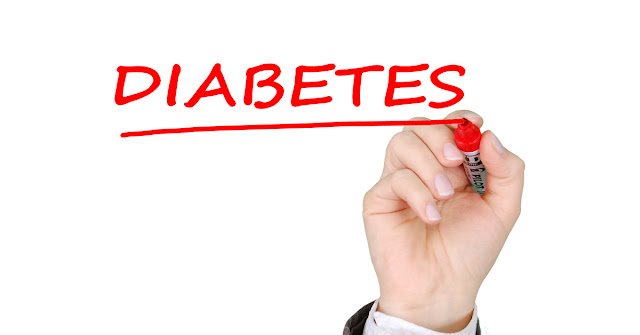Type 1 diabetes develops when, for unknown reasons, the
body's immune system starts to destroy the cells in the pancreas that make
insulin. The immune system is the body's natural defense against bacteria,
viruses and other threats to normal health. The immune system also helps to
repair the body when it has been cut, burned or otherwise damaged.
In the case
of type 1 diabetes, the immune system attacks a part of the body that is
working normally. This harmful mistake by the immune system is called autoimmunity.
No one knows the exact cause of autoimmunity in type 1 diabetes. One theory is
that the defense system is provoked by environmental factors, such as a viral
infection, in people with a certain combination of genes. Other theories
include an unusual reaction to common substances such as a protein in cow's
milk.
 |
| What Causes Diabetes? |
Causes of autoimmunity in type 1 diabetes may include:
1. Heredity.
2. Viral infections.
3. Food.
4. Stresses.
Heredity causes diabetes.
The exact role of heredity in the development of diabetes is
still unknown, but the risk of getting insulin dependent diabetes is higher if
a person's parents have diabetes. The risk of getting diabetes increases from
about 0.3 to 0.5% of the general population, to about 2-5% if one parent has
diabetes and to about 20% if both parents have diabetes.
Scientists have identified some of the genes that are
inherited by people at risk of getting diabetes. But heredity alone does not
determine who develops diabetes. Scientists believe that environmental factors
also play a role. Identical twins have exactly the same genes. Yet, if one
identical twin has diabetes, there is only a 30 to 50% risk that the other twin
will develop diabetes. This shows that heredity is not the only important
factor in the development of diabetes.
Viral infections cause diabetes.
Viral infections may play a role in the development of
diabetes. It is possible that certain types of viral infections alter the
insulin producing beta cells in people who are susceptible to diabetes. For
unknown reasons, the body's immune system does not recognize the altered beta
cells as the body's own. Then the so-called "killer cells" of the
immune system attack and destroy these beta cells. When enough of the insulin
producing beta cells have been destroyed, the person develops diabetes.
Food causes diabetes.
Eating sugar does not cause diabetes. That is, eating sugar
does not cause the immune system to attack and destroy the cells that produce
insulin. Only after the immune system has destroyed most of the insulin
producing cells, does eating sugar cause the level of blood sugar to go up.
Several substances in common foods have been suspected of
triggering the immune system to attack the beta cells that produce insulin.
Even such common foods as cow's milk have been the subject of controversy.
Though scientists continue to investigate various clues, what causes diabetes
in most people is still unknown.
Stresses cause diabetes.
People with diabetes often report that they were exposed to
a stress such as a serious illness or accident around the time that they got
the symptoms of diabetes. Stress does not cause diabetes, but a serious stress
does cause the body to make hormones that counteract the effects of insulin. A
person without diabetes makes more insulin during a serious illness to overcome
the effects of the stress hormones. The destruction of insulin producing cells
in a person who is developing diabetes is often slow and without symptoms. If
there are too few insulin producing cells left when an illness occurs, the body
cannot make the extra insulin that is needed. In this situation, the blood
sugar will go up so dramatically that diabetes is diagnosed.
Must read:
Must Watch:






0 Comments